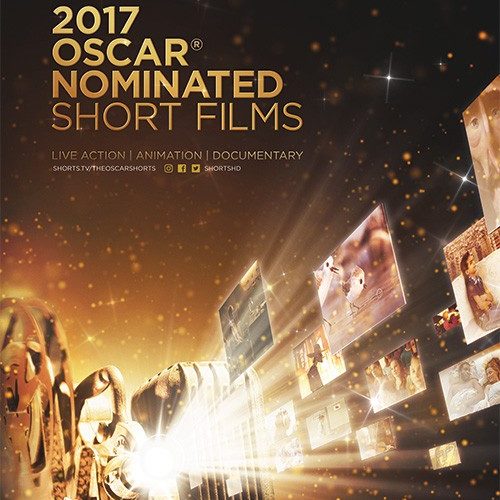Ahead of the Academy Awards, we’re reviewing each short category. See the Documentary section below and the other shorts sections here.
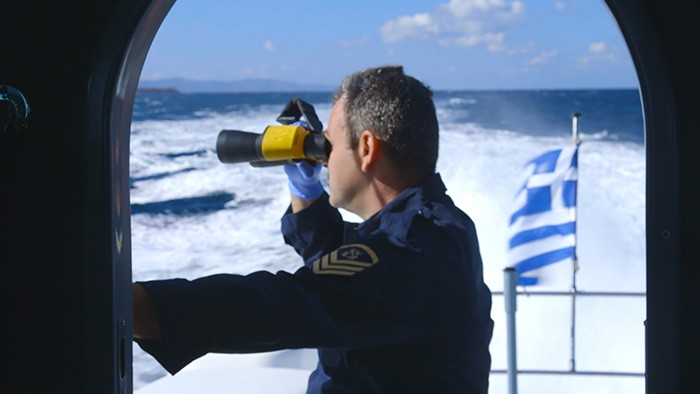
4.1 Miles – USA/Greece – 26 minutes
While Trump’s administration unconstitutionally discriminates against Muslims from countries he doesn’t do business with, heroes are risking their lives to protect those who need protecting. One of these is Kyriakos Papadopoulos, a Greek Coast Guard captain from the island of Lebos who goes out into the choppy waters of the Aegean Sea to rescue refugees braving the four-mile distance from Turkey. He says that they go out every hour to pull in about two hundred innocent survivors of war, the numbers adding up to around 600,000 between 2015 and 2016 alone. Smugglers take their money, put them on boats they know won’t protect against the waves, and send them away. If not for Kyriakos and the others, these 600,000 would all be dead.
As a citizen in the background yells towards the end—during the latest ship to shore journey of shivering cold survivors amongst a couple dead—the world needs to see what’s happening. They cannot keep doing this alone. This is where director Daphne Matziaraki enters, her film 4.1 Miles an uncensored look at the never quite fast enough operations rolling out hour upon hour. She’s in the helm beside Kyriakos as he orders his men to get ropes ready. She’s on the deck as bodies are lifted aboard and pushed back to make room, children and adults screaming to see if their families made it too. Whether on land at a seaside lunch spot or on his vessel, the sadness in Kyriakos’ eyes is unavoidable.
Because no matter how many he saves by going out at the drop of a dime once the helicopter radios in, questions about those he can’t will linger. He’s become a general in a war he isn’t fighting, a savior of people whose language he cannot even understand. This wasn’t in the job description and yet he does it because it’s the right thing to do. Lebos can’t feasibly support all these refugees and who knows what the Greek government does with them once they’ve been interviewed and accounted for, but that’s just white noise when the only thought in the moment is making sure no one dies. It’s hard not to imagine Trump on that boat in Kyriakos’ place simply watching as they drown.
B+
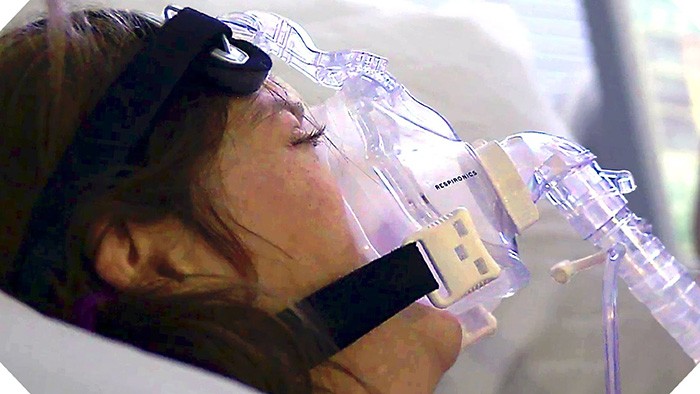
Extremis – USA – 24 minutes
If there’s substance to Dan Krauss‘ documentary short Extremis beyond its observational look at the emotionally heavy compromises made when a patient is faced with life or death scenarios, it’s to provide concrete evidence as to why you should put your own decisions down in writing before anything bad can occur. It’s a difficult conversation to start, but that difficulty is ultimately for you and you alone. Your not having the courage to start it is what subsequently transfers the difficulty onto the shoulders of family and doctors, the weight of it growing exponentially since they’ll never know whether the choice they’ve settled on was the one that was best for you or them. Differentiating this is literally impossible and they’ll question themselves the rest of their lives.
The film is unfortunately too brief to truly dig into each ramification of what could happen, but it does do a wonderful job introducing multiple examples (a still communicative wife, virtually comatose mother, homeless man with no kin, and father wrestling his desires against those of the son he’ll leave behind) that force you to contemplate innumerable “what ifs.” We hear a little from Dr. Jessica Zitter about her wake-up call to recognize how some long shot procedures deliver more pain than assistance; a little from Dr. Monica Bhargava about the ethical responsibility of explaining facts and pushing someone towards a choice they wouldn’t have chosen themselves; and a bit from families willing to let God decide so their consciences remain clear. There’s no right answer.
A fly on the wall throughout, moments that feel like someone is talking to the camera are revealed as doctors in conversation or family members in debate (sometimes alone). We witness the tragic sadness of recognizing death as inevitable and blind faith in miracles as coping mechanism more than actual hope. Extremis is a compact expression of futility in the fact that no one but the patient can truly know what’s wanted so their situation can play out on their terms—even if wrong—rather than an outsider letting emotions shield away hard truths. But don’t assume this means the doctors are immune as third parties. The most powerful moment onscreen proves to be Zitter breaking down in the knowledge that there’s nothing more she can do.
Death comes for everyone and it’s hard enough to have to deal with your own let alone someone else’s without discussing the myriad possibilities we all try to avoid. Setting those decisions in stone or being conscious enough to have them in the moment, however, hardly renders the circumstances bearable. There are still feelings of abandonment, regret, guilt, and love no matter the ordeal set in front of these families. There’s the burden of knowing what your spouse wants and still being unsure if their situation has become direr enough to do so. And that’s why doctors are paid the big bucks and respected for their objectivity. They discover whether their options have been exhausted to the point where comfort is all that’s left. That responsibility is unimaginable.
B
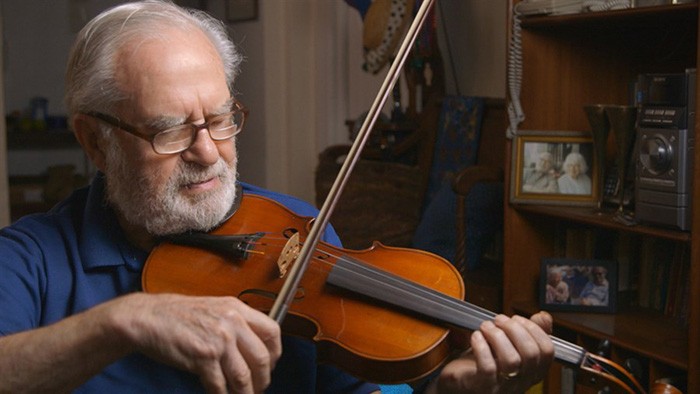
Joe’s Violin – USA – 24 minutes
You never know when a potential story will come your way. For Kahane Cooperman it was on her drive to work around New York City while listening to WQXR. The station was calling for used instruments to be donated for children and schools in need, a story about how they already received one from a ninety-one year old Holocaust survivor piquing Cooperman’s interest. An adventure to discover who this man was and how he acquired the violin began that ultimately led her to its new home at the Bronx Global Learning Institute for Girls. What sprang from this radio promotion was an unlikely journey of a wind instrument surviving chaos, war, and horror, its fateful mission bringing two disparate people together through music, hope, and love.
Joe’s Violin becomes something akin to War Horse wherein the film tells a sprawling multi-faceted tale swirling around a seemingly innocuous piece of property. If not for this instrument we wouldn’t know Joseph Feingold‘s arduous story of Siberian labor camps and the song his lost mother sang to him in letters. We also wouldn’t have met young Brianna Perez, daughter of an immigrant family who won a lottery to attend BGLIG and dove headfirst into music’s cathartic powers. A simple good deed suddenly becomes a tidal wave of emotion, history passed on through artifact so as never to extinguish the memory of what happened and what continues to happen to this day. To outsiders it’s just a violin, but to Joe and Brianna it is life.
Cooperman takes us along for the ride, her inquiry into the donation’s origin leading to Joseph and the Mr. Holland’s Opus Foundation tasked to find its new home. Her film proves both a Holocaust survival story and feel good “pay it forward” piece, the violin transforming into hallowed object made immortal. It’s a symbol of the past, a good luck charm for the future, and a selfless gift that will never cease giving. Cooperman couldn’t have written the story better herself or created more generous, kind, and empathetic souls than Joe and Brianna. The film documents two lives that literally change in a way neither anticipated. Two people who never would have met if not for this music drive suddenly inseparable within the annals of time.
B+
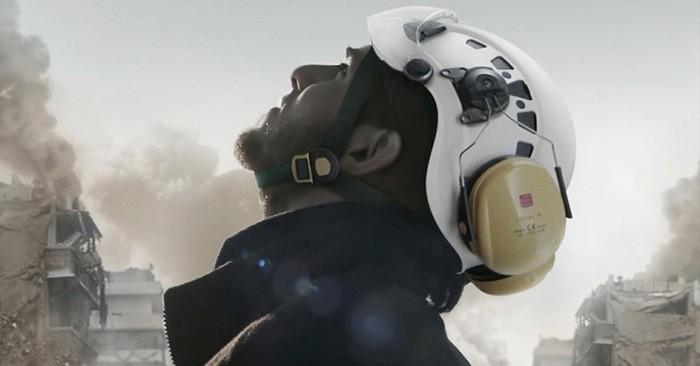
The White Helmets – USA – 41 minutes
Every year seems to bring a new on-the-ground document of nightmarish tragedy thanks to Netflix’s fearless international programming. 2013 brought the fantastic The Square about Egyptians standing ground in their revolution against tyrants. 2015 brought the equally eye-opening Winter on Fire to ensure everyone acknowledged the human cost of what was and is happening in Ukraine. And now 2016 brings Orlando von Einsiedel‘s short The White Helmets, a look at the heroes risking everything to preserve life in a nation ravaged by death. Because as ISIS declares Syria their base of operations, nations like Russia take it upon themselves to stage bombings without rhyme, reason, or care for innocent lives. Thankfully there are still courageous first-responders to ensure the destruction of human life won’t equal that of property.
The hometown of the subjects being Aleppo City renders it required viewing for Americans caught in President Trump’s fearmongering. As they scream for a wall on the Mexican border and cry about our extreme vetting being insufficient for seven countries that have yet to deliver a terrorist in order to justify said fear, compassionate Muslims in Syria do what they can to save people rather than damn them to a fate out of their control. The Syrian Civil Defense team (known as the White Helmets) is around 2,900 strong—men with wives and children who look past selfish desires to do what it takes to combat this carnage. They run towards ground zero on faith and remain despite continued bombings until every body (dead or alive) is found.
von Einsiedel pulls no punches with the film’s first half putting us directly into the fray with bombs exploding, victims screaming, and bodies seen motionless in the rubble. He lets Khalid Farah, Mohammed Farah, Abu Omar, and more tell stories of horror and miracle, each speaking to the camera as footage of the incidents described show how harrowing it truly was. But the second half may be even harder to watch because we leave for Turkey as the men join a month-long rescue-training course. As they learn what’s necessary to return home and save lives, they are helpless to read of each day’s raids and casualties—often consisting of family members and friends—online. They pray for their own, but also know that every Syrian is now family.
More than that, this ordeal galvanizes them to realize how every human being no matter religion or race is family. No one deserves to endure this terror and no one should feel helpless in his/her plight. Just because the media shoves ISIS and zealotry down our throats to stoke the fires of “America First” cowardice doesn’t mean every Syrian, Arab, or Muslim fits under that umbrella. One of the men showcased here fought the rebellion against ISIS before he saw how his “allies” were targeting civilians (and therefore he was too). So he joined the White Helmets instead, deciding that saving a life was better than taking one. Hopefully Trump supporters can one day learn from this. A ban literally ensures death for people devoted to preserving life.
A-
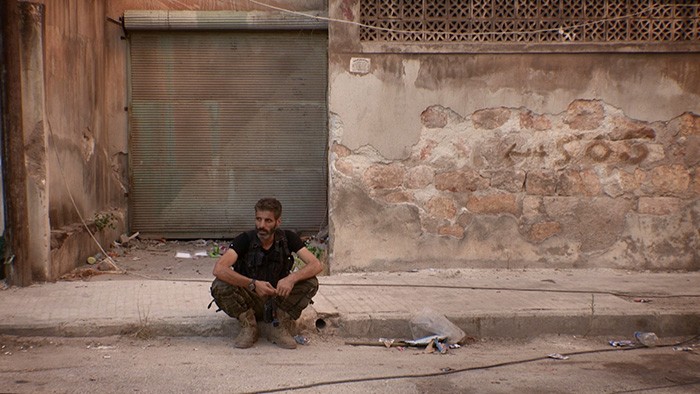
Watani: My Homeland – UK – 39 minutes
Out of five Oscar-nominated documentary shorts, four deal with the cost of genocide with three being specifically about today’s Arab refugees. This shouldn’t come as a surprise considering the topic is very much at the forefront of the world’s mind, the internet allowing injustices thousands of miles away appear as though they’re occurring right next door. What sets Marcel Mettelsiefen‘s Watani: My Homeland apart from the other two, however, is that it focuses on the innocents made to endure civil war and bigotry. This isn’t about the unsung heroes doing what they can to save lives while ISIS and Russia destroy them. This is about those that need to be saved—the children stripped of education, safety, and a “normal” childhood because of circumstances way beyond their control.
This is the type of human-interest story everyone stateside should watch as a barometer for whether we’ll continue lumping all Muslims into the category of “terrorist” or finally realize everyone—despite different religions and races—pumps blood the same as them. For Abu Ali’s family living amongst the Syrian revolutionaries doing what they can to stop ISIS from destroying their homeland more than they already have, life becomes intertwined with country. Syria is everything to them and Abu Ali and his wife have decided to stay and preserve it the best they can at the risk of their four children’s lives. Mettelsiefen shows the nightmare of 2013 Aleppo, the kids running inside whenever an aircraft flies by. It’s a way of living we simply cannot imagine.
Fast forward to 2014 and suddenly Abu Ali is gone—his capture by ISIS for all intents and purposes erasing his wife’s identity. She must now rise up and decide whether to stay or work towards leaving as a refugee so her kids can have a future they’ve thus far been denied. As anyone keeping tabs on the current US administration’s positions knows, their potential destination is not America. Instead the struggle will go through Turkey and hopefully to Europe. It’s a turning point that conjures conflicting hopes, one that will inevitably bring them farther from their home than the bombings and terrorists ever could. Is it better to stay where your religion and language is embraced? Or is the possibility of racism and bigotry worth the escape?
There’s some wonderful philosophical notions shared about home and identity evolving through age, maturity, and environment. We’re talking about kids who’ve only known their religion through the filters of their parents and the enemy. While it gave their father strength, ISIS tainted it in a way that will mark them forever. Do you strive to therefore relinquish who you were to become who you can be? Or is the opportunity Europe offers a means to educate yourself and ultimately return with the knowledge necessary to help reclaim your nation from its oppressive regime? This is a reality our ancestors faced to become Americans; a process that doesn’t ever happen overnight. The only way to foster alliance and friendship is by offering a helping hand—something we’ve sadly forgotten.
B+
The Oscar Nominated Shorts are in limited theatrical release starting February 8th. See the official site for more details and our reviews of the other shorts sections here.

